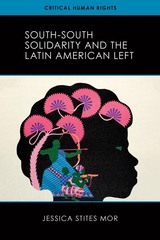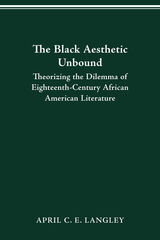
Consequently, this book has three aims: to locate the eighteenth century as the genesis of the cultural and historical movements which mark twentieth-century black aestheticism—known as the Black Aesthetic; to analyze problematic associations of African identity as manifested in an essentialized Afro-America; and to study the relationship between specific West African modes of thought and expression and the emergence of a black aesthetic in eighteenth-century North America. By exploring how Senegalese, Igbo, and other West African traditions provide striking new lenses for reading poetry and prose by six significant writers, Langley offers a fresh perspective on this important era in our literary history. Ultimately, the author confronts the difficult dilemma of how to use diasporic, syncretic, and vernacular theories of Black culture to think through the massive cultural transformations wrought by the Middle Passage.
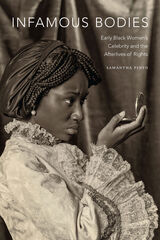

Reising suggests that these "non-endings" entirely refocus the narrative structures they appear to conclude, accentuate the narrative stresses and ideological fissures that the texts seem to suppress, and reveal "shadow narratives" that trail alongside the dominant story line. He argues that unless the reader notices the ruptures in the closing moments of these works, the social and historical moments in which the narrative and the reader are embedded will be missed. This reading not only offers new interpretive possibilities, but also uncovers startling affinities between the poetry of Phillis Wheatley and the fiction of Henry James, between Charles Brockden Brown’s Wieland and Melville’s least-studied novel, and between Emily Dickinson’s poem "I Started Early—Took My Dog" and Disney’s animated classic.
Pursuing the implications of these failed moments of closure, Reising elaborates on topics ranging from the roots of domestic violence and mass murder in early American religious texts to the pornographic imperative of mid-century nature writing, and from James’s "descent" into naturalist and feminist fiction to Dumbo’s explosive projection of commercial, racial, and political agendas for postwar U. S. culture.
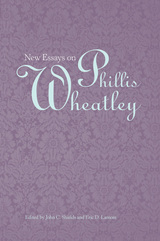
The first African American to publish a book on any subject, poet Phillis Wheatley (1753?–1784) has long been denigrated by literary critics who refused to believe that a black woman could produce such dense, intellectual work, let alone influence Romantic-period giants like Samuel Taylor Coleridge. Indeed, Thomas Jefferson once declared that “the compositions published under her name are below dignity of criticism.” In recent decades, however, Wheatley’s work has come under new scrutiny as the literature of the eighteenth century and the impact of African American literature have been reconceived. In these never-before-published essays, fourteen prominent Wheatley scholars consider her work from a variety of angles, affirming her rise into the first rank of American writers.
The pieces in the first section show that perhaps the most substantial measure of Wheatley’s multilayered texts resides in her deft handling of classical materials. The contributors consider Wheatley’s references to Virgil’s Aeneid and Georgics and to the feminine figure Dido as well as her subversive critique of white readers attracted to her adaptation of familiar classics. They also discuss Wheatley’s use of the Homeric Trojan horse and eighteenth-century verse to mask her ambitions for freedom and her treatment of the classics as political tools.
Engaging Wheatley’s multilayered texts with innovative approaches, the essays in the second section recontextualize her rich manuscripts and demonstrate how her late-eighteenth-century works remain both current and timeless. They ponder Wheatley’s verse within the framework of queer theory, the concepts of political theorist Hannah Arendt, rhetoric, African studies, eighteenth-century “salon culture,” and the theoretics of imagination.
Together, these essays reveal the depth of Phillis Wheatley’s literary achievement and present concrete evidence that her extant oeuvre merits still further scrutiny.
John C. Shields is Distinguished Professor of English at Illinois State University. He is the editor of The Collected Works of Phillis Wheatley and author of The American Aeneas: Classical Origins of the American Self, a Choice Outstanding Academic Book; Phillis Wheatley and the Romantics; and Phillis Wheatley’s Poetics of Liberation; and awarded honorable mention in competition for the American Comparative Literature Association’s Harry Levin Prize. As well, Shields serves as director of the Center for Classicism and American Culture and General Editor for the series of monographs on Classicism in American Culture to be published by the University of Tennessee Press.
Eric D. Lamore is an assistant professor of English at the University of Puerto Rico, Mayaguez, and a contributor to The Greenwood Encyclopedia of American Poets and Poetry.

A marginalized but persistent figure of Greek tragedy, Niobe, whose many children were killed by Apollo and Artemis, embodies yet problematizes the philosophically charged dialectics between life and death, mourning and melancholy, animation and inanimation, silence and logos. The essays in Niobes present her as a set of complex figurations, an elusive mythical character but also an overdetermined figure who has long exerted a profound influence on various modes of modern thought, especially in the domains of aesthetics, ethics, psychoanalysis, and politics. As a symbol of both exclusion and resistance, Niobe calls for critical attention at a time of global crisis.
Reconstructing the dialogues of Phillis Wheatley, G. W. F. Hegel, Walter Benjamin, Aby Warburg, and others with Niobe as she appears in Aeschylus, Sophocles, Ovid, and the visual arts, a collective of major thinkers—classicists, art historians, and critical theorists—reflect on the space that she can occupy in the humanities today. Inspiring new ways of connecting the classical tradition and ancient tragic discourse with crises and political questions relating to gender, race, and social justice, Niobe insists on living on.
Contributors:
Barbara Baert, Andrew Benjamin, drea brown, Adriana Cavarero, Rebecca Comay, Mildred Galland-Szymkowiak, John T. Hamilton, Paul A. Kottman, Jacques Lezra, Andres Matlock, Ben Radcliffe, Victoria Rimell, Mario Telò, Mathura Umachandran, Daniel Villegas Vélez
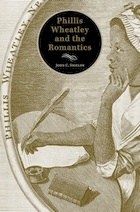
Phillis Wheatley was the first African American to publish a book. Born in Gambia in 1753, she came to America aboard a slave ship, the Phillis. From an early age, Wheatley exhibited a profound gift for verse, publishing her first poem in 1767. Her tribute to a famed pastor, “On the Death of the Rev. Mr. George Whitefield,” followed in 1770, catapulting her into the international spotlight, and publication of her 1773 Poems on Various Subjects Religious and Moral in London created her an international star.
Despite the attention she received at the time, history has not been kind to Wheatley. Her work has long been neglected or denigrated by literary critics and historians. John C. Shields, a scholar of early American literature, has tried to help change this perception, and Wheatley has begun to take her place among the elite of American writers.
In Phillis Wheatley and the Romantic Age, Shields contends that Wheatley was not only a brilliant writer but one whose work made a significant impression on renowned Europeans of the Romantic age, such as Samuel Taylor Coleridge, who borrowed liberally from her works, particularly in his famous distinction between fancy and imagination. Shields shows how certain Wheatley texts, particularly her “Long Poem,” consisting of “On Recollection,” “Thoughts on the Works of Providence,” and “On Imagination,” helped shape the face of Romanticism in the late eighteenth and nineteenth centuries.
Phillis Wheatley and the Romantic Age helps demolish the long-held notion that literary culture flowed in only one direction: from Europe to the Americas. Thanks to Wheatley’s influence, Shields argues, the New World was influencing European literary masters far sooner than has been generally understood.
READERS
Browse our collection.
PUBLISHERS
See BiblioVault's publisher services.
STUDENT SERVICES
Files for college accessibility offices.
UChicago Accessibility Resources
home | accessibility | search | about | contact us
BiblioVault ® 2001 - 2024
The University of Chicago Press






